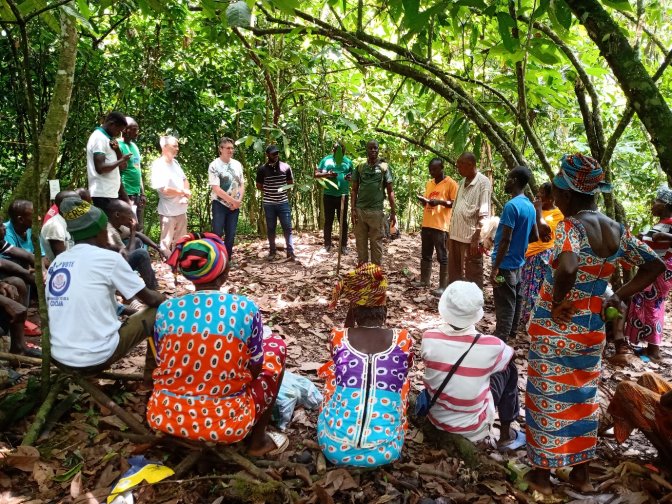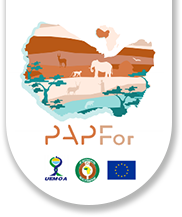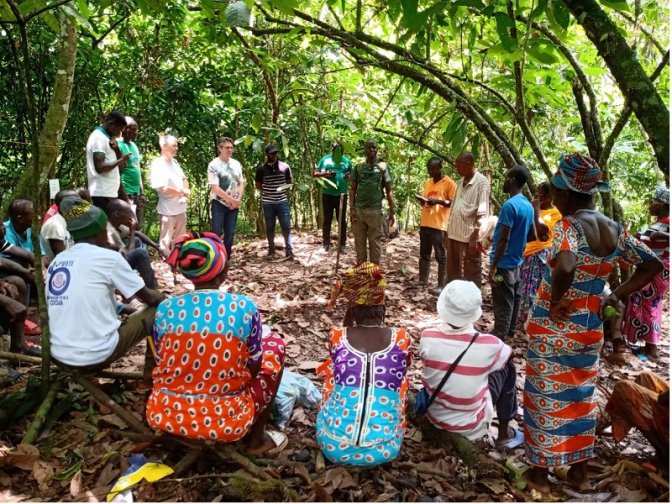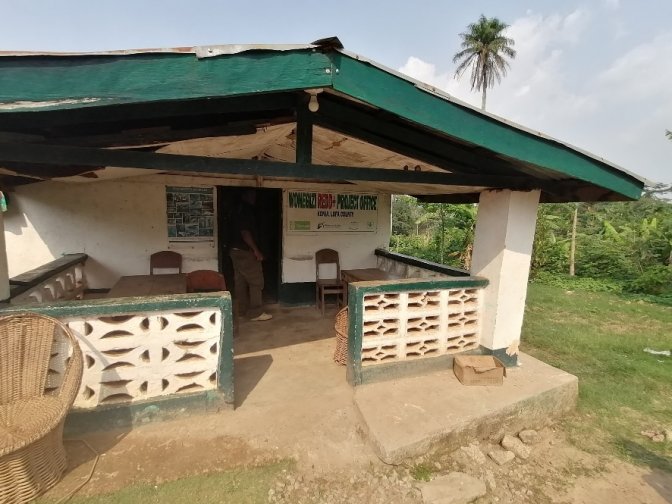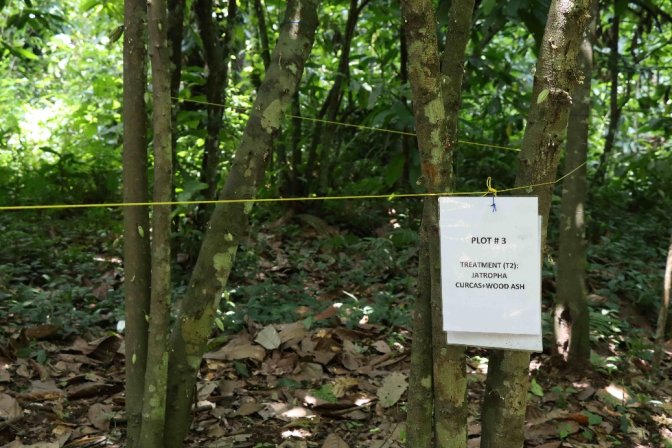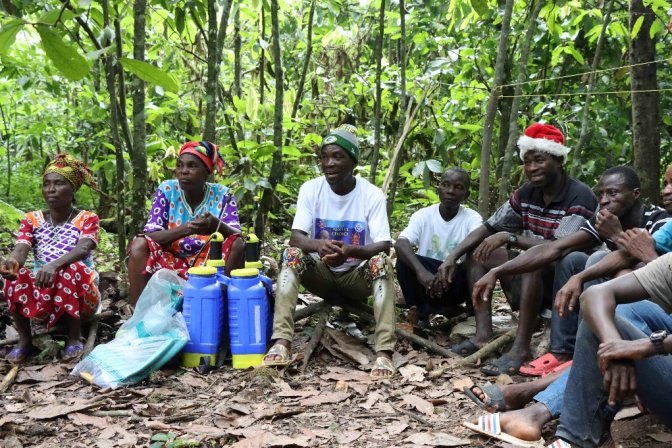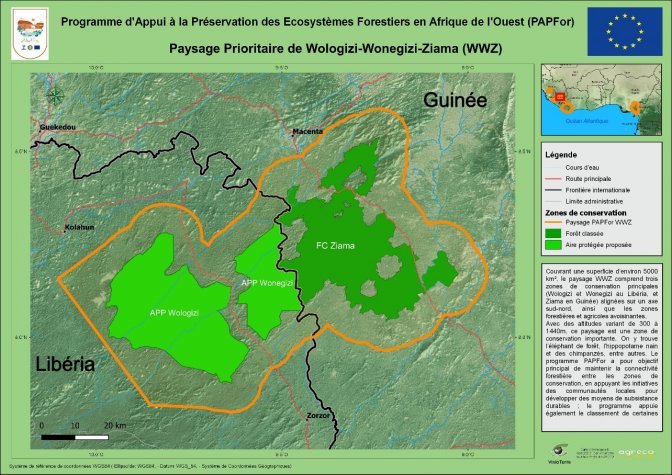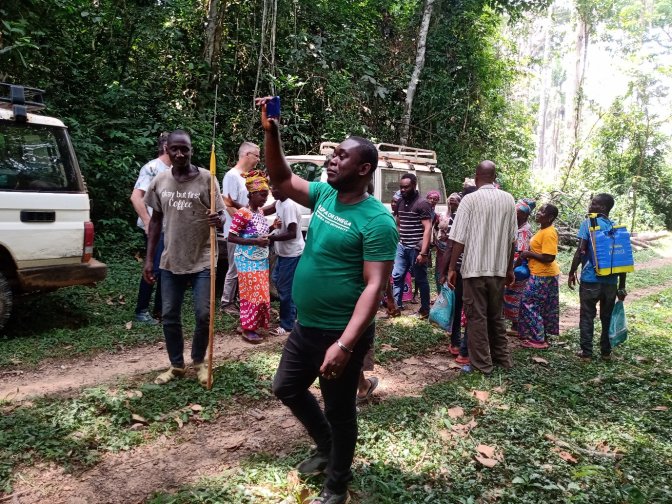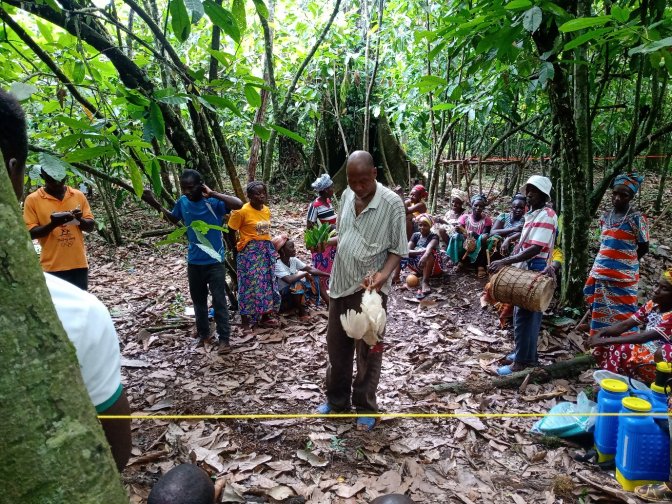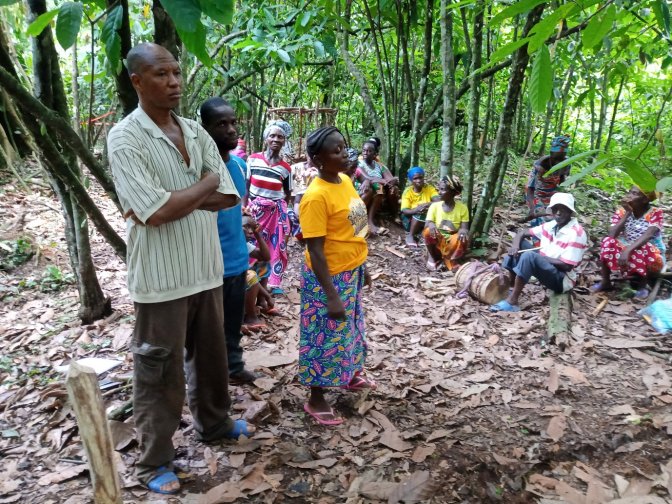Home / News / Developing natural pesticides to replace chemical pesticides in (...)
Developing natural pesticides to replace chemical pesticides in Wonegizi
From 13 to 16 April, a field visit mission to the Wologizi-Wonegizi-Ziama (WWZ) landscape was carried out by PAPFor Regional Coordinator Marc Languy, PAPFor FFI Project Coordinator Simon Burdett and Patrick Epie, FFI Landscape Manager for WW and East Nimba Nature Reserve.
The mission provided an opportunity to discuss the various initiatives implemented under PAPFor, including bio-monitoring and law enforcement activities, identification of forest corridors between Wologizi and Wonegizi, and support to Village Savings Loan Associations.
Among these activities, one in particular caught the mission’s attention during a visit to two sites where cocoa farming practices are promoted with locally sourced pest and disease management techniques.
This initiative is implemented by FFI with technical support from Skills and Agricultural Development Services (SADS), which has a dedicated team with good connections to local communities. The role of SADS is focused on agricultural support activities as part of the implementation of PAPFor on the Liberian side of WWZ.
The chairwoman of the trial participants in Barwen, Kebbeh Mulbah, said “Now we are able to identify and control pests and diseases of cocoa without spending money, and also we are now knowledgeable about key pollinators of cocoa, one of which is the midge, as we didn’t know that before!” On behalf of the participants, Kebbeh further stressed that the project is also providing them with crops (cocoa and oil palm), fish farming, and improved varieties of lowland rice.
As the tests only began in March 2023, it is too early to draw conclusions from the natural pesticide experiment. Look out for more details in our future newsletters and on the website.
"The approach is particularly interesting," noted Marc Languy. "It is a good example of applying traditional local knowledge about plants to developing an organic cocoa production chain, which is increasingly sought after by consumers and allows communities to sell the beans at a better price.”. Patrick Epie, NW Landscape Manager said: “Avoiding the application of chemical pesticides reduces the associated health risks for the communities concerned, as well as the impacts on nearby rivers”.
